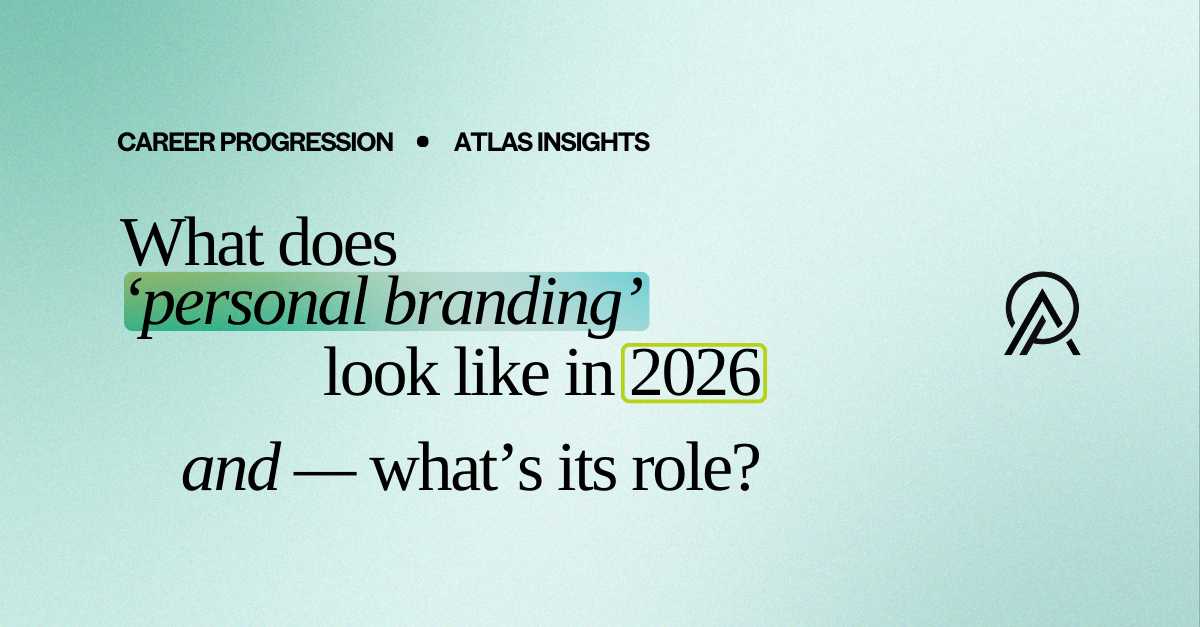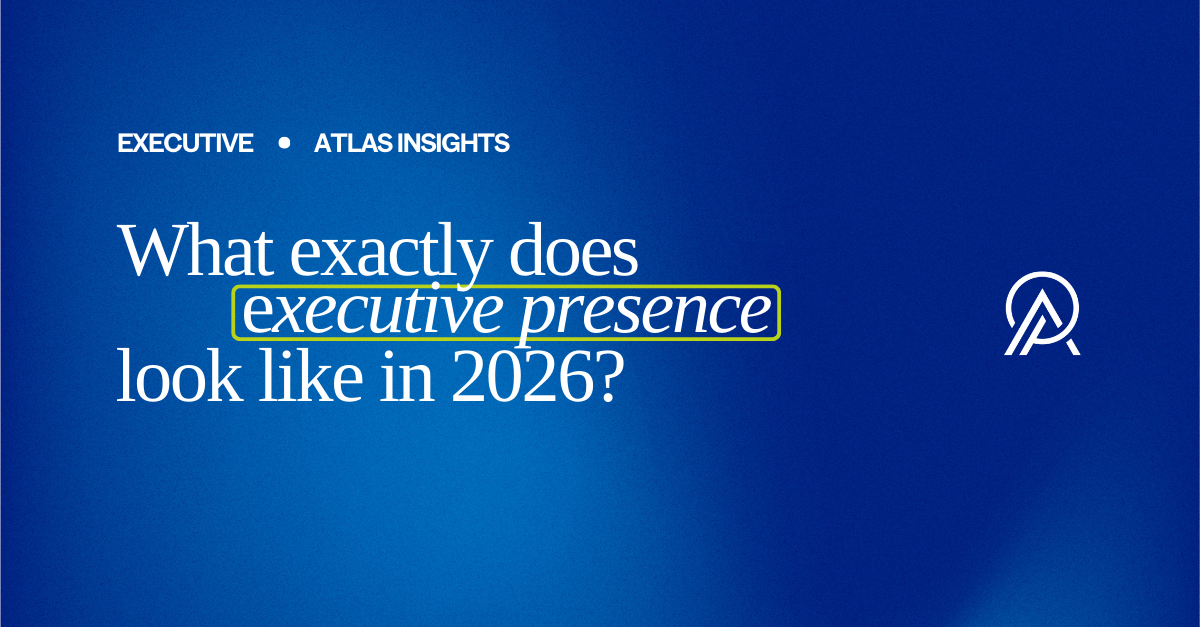
Sarah Seddon’s time with German owned chemical producer, BASF has been nothing short of impressive, joining the company in the height of COVID as Business Operations Manager, and kicking goal after goal — four years and five promotions later landing her current role of Head of Supply Chain Management. With over 15 years of experience in mining, metals and FMCG and qualified as a Chartered Accountant (ICAANZ), Company Director (GAICD) and a non-technical accreditation in Robotic Process Automation (UiPath) — we’re excited to see where the future takes her.
Sarah joined Craig Gorton, Director of Atlas Partners for our Pathways Podcast.
Craig Gorton: I’m here today with Sarah Seddon, Head of Supply Chain Management for the APAC region at BASF. Sarah, thank you for joining us today. Can we start by reviewing your career journey, including your early days and foundational lessons that you still use today?
Sarah Seddon: You’re welcome. Thanks, Craig, and thank you for having me. When I first saw this question, I was a little stumped, trying to think back to those early days. For me, it was really trial and error. I went straight from university into a firm specialising in insolvency.
Then I tried tax accounting for a few years and started my chartered accountancy. I wanted to take a break, travel, and ended up overseas, spending some time with friends before landing in London. Like most Australians, I settled there for a couple of years and began working in management accounting at a venture capital firm.
When I returned to Australia, I completed my chartered accountancy and took a role as a financial accountant at CSR Sugar. That was when I really figured out what I liked and where I could add value. I found I really enjoyed optimising and standardising processes, and that’s still the approach I take today—what do I enjoy, and where can I add value?
A manager I worked with at CSR approached me a couple of years later when I was doing a maternity leave contract at CUB. She asked me to join MMG, a mid-tier mining company, during a restructure. She needed someone with my skillset in process standardisation, cost reduction, and delivering efficiency in the financial services function.
That was a great learning experience, showing me that you never know when you’ll cross paths with people again in your career. Knowing what you’re good at really helps others advocate for you, and that’s something still benefiting me today.
Craig Gorton: Fantastic. I agree—continuous improvement is such an important skill set to develop, the earlier, the better. It really helps you focus on cost and efficiency. That’s a really valuable foundational learning.
Now, tell me more about your journey into the FMCG, mining, and chemicals sectors. What attracted you to those industries, and was it what you expected?
Sarah Seddon: It was probably more the role that attracted me than the industry itself. That’s what led me to apply for the position at CSR Sugar. However, I really enjoyed learning about manufacturing and refinery operations on-site in Yarraville.
In mining, I did expect it to be very male-dominated and challenging to navigate, but that never materialised. I never felt my gender had any negative impact on my career.
The first mine site I visited was in Tasmania at Rosebery, where I was supporting an on-site audit. That was my first work-related travel experience, and it made me realise there might be an opportunity to combine my love of travel with my career, particularly in mining with its global operations.
A few years after that, I was regularly travelling to Africa, Southeast Asia, and South America. It really paid off.
Craig Gorton: Excellent. When we first met for coffee, I think it was clear that mixing travel with your career is something you’ve done better than most.
You transitioned your career at this point, moving into operations with a focus on supply chain, away from what I’d call traditional finance. Was this intentional? And if so, how did you manage the transition?
Sarah Seddon: No, it wasn’t intentional to move into supply chain. While at MMG, I was leading the global business services finance function. As part of being in GBS, each leader was encouraged to study with the Hackett Institute and complete a Diploma of Global Business Services. Some supply chain activities sit under that GBS umbrella, which was my first introduction.
Eventually, after leaving MMG, I applied for an operational role at BASF, managing a mix of supply chain professionals as well as controlling and finance activities. It was a great bridging role for me to understand supply chain.
To manage the transition, I subscribed to a YouTube channel on supply chain and logistics, completed short courses on LinkedIn Learning, and asked a lot of questions from my team, manager, and other colleagues.
My passion for driving change, continuous improvement, and transformation has been completely transferable across both finance and supply chain.
Craig Gorton: Bringing a financial mindset into supply chain and operations is valuable because it helps you understand the end result and how to get there, as well as the measurements along the way. It’s a powerful background to bring into leadership.
Let’s talk about leadership now. You’re leading some sizable teams, and that brings its own challenges. You’ve progressed through several leadership roles at BASF and are now in an APAC regional role. I know you’ve been responsible for the SAP implementation rollout in the region as well, which must involve complexities. What do you enjoy about leadership?
Sarah Seddon: The learning never stops. I’m constantly learning about different cultures and countries across the region, and the variety of challenges is exciting. I get to drive the strategy of the organisation, which is not something everyone gets to do.
Currently, I’m the head of supply chain for 23 countries in Asia Pacific. That brings a multitude of opportunities and challenges, and right now, I’m working through a new supply chain operating model in two countries. In Thailand, we’re implementing a client-to-clear model with a direct importer, and in India, we’re using a high-sea sales model.
I enjoy the fast pace and problem-solving with my teams to improve operational efficiency while building our value proposition as a function within the business.
I’m also leading the SAP rollout, with the go-live scheduled in just six weeks time. The project team and country supply chain members are working incredibly hard to ensure a successful implementation, especially since not every country celebrates Christmas. But in Australia and New Zealand, we do, so it’s a tough timeline.
Craig Gorton: With the go-live so soon, there’s a lot of work to be done. Something that really sparked our conversation was your academic approach to your career development. You mentioned moving into operations and taking ownership of your learning in that environment. I know you’ve recently completed the Women Transforming Leadership course, as well as the Australian Institute of Company Directors course. What benefits have these educational experiences had on your career?
Sarah Seddon: I’ll start with the Company Directors course. It was offered to me as part of career development. Colleagues who had completed it recommended it, as it took my thinking from a senior management level to an executive level. I met some amazing people at the in-person course, and I couldn’t recommend it enough. It’s a great credential that supports my ongoing executive career, though I haven’t joined a board yet—something I plan to do in the near future.
The Women Transforming Leadership course at Oxford was life-changing. I struggled with impostor syndrome and self-doubt. Over the course of the week, we covered both theory and practical elements of leadership. We practiced peer coaching, built our leadership toolkits, explored our psychometric tests to understand our behaviours, and left with a strategy blueprint for our careers.
The tipping point for me was being surrounded by incredible, accomplished women from different industries and countries. They also struggled with self-doubt, which helped me build my self-confidence and accept that it’s okay to own my ambition. The course was short, but it set me up for the rest of my career.
Craig Gorton: Absolutely. That collegiate environment, sharing experiences, and finding your purpose is so powerful. It’s motivating when you find the purpose behind your role.
I’ll include links to both courses in the article, so listeners can explore them further. Another important factor in career progression is mentorship. Can you tell us about any mentors who’ve had a strong impact on your career?
Sarah Seddon: Many people have influenced my career—executive coaches, mentors, and managers. A key person was a manager at MMG who saw my potential as a leader and taught me how to negotiate. He asked me to step up into a team leader role and funded a new manager training course through the Australian Institute of Management. He also approved a higher duties allowance for me until we formalised the role.
That coaching was invaluable. I now share it with my mentees. He taught me that it’s okay to negotiate salary and continue investing in your learning and development.
Another key person at BASF was my first manager there, who took a chance on me and connected me with the Managing Director as a mentor. She’s still an advocate for me in the global organisation.
The Managing Director has been a wonderful mentor and sponsor, pushing me out of my comfort zone into bigger roles. He invested in an executive coach for me and encouraged my move into supply chain.
Lastly, my husband has influenced my career. He offers pearls of wisdom, like “do the job you want, not the job you have,” and taught me about the amygdala hijack—understanding when emotions take over and learning to prioritize effectively. He supported my decision to relocate to Laos for eight months to embed our financial services function in Asia, and his support gives me confidence to continue pursuing my career.
Craig Gorton: Fantastic. There’s been so much valuable advice in this conversation, Sarah. To wrap up, what advice would you have for future leaders listening to this?
Sarah Seddon: If it doesn’t challenge you, it won’t change you. I encourage everyone to put their hand up for every project and opportunity, even if you think you can’t do it. Keep learning new things—I’ve done so many courses, projects, and training programs throughout my career. I’d encourage everyone to invest in their own development—it’s been instrumental in setting me up for success.
Craig Gorton: Excellent words of wisdom, Sarah. Thank you so much for joining us today. We really appreciate the advice you’ve shared. We look forward to hearing from our listeners and readers. Thank you.
Sarah Seddon: Thanks so much, Craig. Thanks for having me.
Links:




